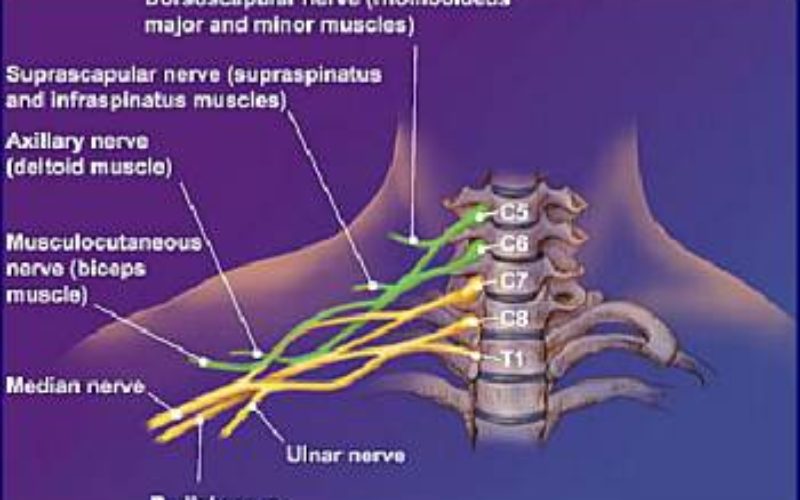Herniated Disks
What is a Herniated Disk?
A disc herniation occurs when a portion of the inter-vertebral disc material bulges and “sticks out” into the neural canal. This can produce pressure on the spinal cord or nerve roots and cause pain, numbness, or tingling into the arm or leg. This is very rarely a surgical condition and usually responds with non-surgical treatment. This is also often referred to as a “slipped disc” and is much different that a ruptured disc fragment, which can sometimes lead to surgery.
What are other causes of low back pain?
There are many other conditions that can cause back pain. Some of these are congenital, such as scoliosis. Most causes of back pain, however, result from an injury or trauma. Common causes of back pain include:
- Muscle Strain
- Bulging or herniated disc
- Degenerative disc disease
- Sciatica or pinched nerve
- Sacroiliac Joint Inflammation
There are also many other conditions which can contribute to back pain. These conditions are almost always treated non-surgically, resulting in a successful outcome the vast majority of the time.
What is Sacroiliac Joint Pain?
Inflammation in the sacroiliac (SI) joint can cause pain in the low back or buttocks. This is especially common in women, and often radiates into the leg, masquerading as sciatica. SI joint pain responds well to non-steroidal
medications and physical therapy. Occasionally, injections into the joint space are necessary to completely alleviate the pain and dysfunction.
What is an Epidural Steroid Injection?
The epidural steroid injection is the placement of deposit steroid or cortisone, a powerful anti-inflammatory agent, into the epidural space, which approximates the disc and spinal column. The treatment of epidural injection has been around for over 40 years. It involves using either steroids or anesthetic agents allowing good benefit with minimal risk
factors. The main goal of the epidural injection is to shrink the swelling in bulging or herniated discs, and to decrease any inflammation that surrounds the disc and may be pressing on a spinal nerve.
What causes numbness and the tingling in the upper or lower limbs?
Pain or a “pins and needles” sensation can sometimes be present in the arms, hands, legs, or feet. There are many items that cause these symptoms, including:
- Carpal Tunnel Syndrome
- A pinched nerve in neck or in the lower back.
- Peripheral Nerve Damage
A herniated or inflamed disc in the disc can irritate or compress a nerve that travels into the arm or leg, and thereby produce symptoms of pain, numbness, or tingling. The symptoms can sometimes go from one extremity to another. Although this may cause alarm, there are many non-surgical treatment options available.
What is an MRI? MRI, or Magnetic Resonance Imaging, is a type of powerful radiographic study that provides a clear diagnostic picture without using radiation. The MRI image gives enhanced views of the body part in question. An MRI scan of the spine, for example, provides a superior view of the discs in the back, as well as the nerves and other soft tissues.
The doctor can look at the MRI films and determine whether there is a pinched nerve, a degenerative disc, a tumor, or in some cases spinal stenosis. The doctor may use the MRI to correlate with the patient’s symptoms and physical exam. The greatest advantage of the MRI is in its ability to allow the physician to see inside the body without the need for
surgery or potentially harmful radiation.
How can steroids be helpful?
Steroids are very effective in decreasing swelling and inflammation in the body. Often steroids are used to “cool off” inflammation in a joint or in the spine around a disc. This is a very effective treatment method with few side effects.
Many patients ask about the potential risks or side effects of steroid use. While it is true that long-term repetitive use of steroids over many years can increase the risk of side effects, short-term cortisone use in the form of injections or oral medications is thought to be relatively safe with hardly any side effects or problems.
Be sure to ask your doctor if you have any questions or concerns.








